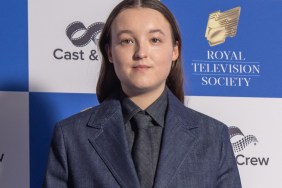
It simply didn’t “click” for me while watching, but shortly after seeing Woody Allen‘s latest feature, Blue Jasmine, a fellow critic pointed out the parallels to Tennessee Williams’ Pulitzer Prize-winning stage play “A Streetcar Named Desire“. It’s an apt comparison and surely an intentional one and Cate Blanchett, whom played Blanche DuBois on stage as recently as 2009, delivers a powerful performance in what can only be described as a modern day upgrade with a satirical spin on one percenters.
Here Blanchett plays the title character, Jasmine, a name she’s given herself as she abandoned her birth name, Jeanette, upon marrying Hal (Alec Baldwin), her investment banker sugar daddy. Allen paints Hal as a Bernie Madoff-esque character and chosen to tell a present-day story mixed with a variety of flashbacks as this one-time New York socialite is brought back down to earth and forced to move to San Francisco to live with her sister, Ginger (Sally Hawkins), once Hal is hauled off to jail for his shady dealings.
Lost, bewildered and occasionally seen talking to herself, Jasmine arrives to find she and Ginger couldn’t be leading their lives any more differently. Used to the high life, but now penniless, Jasmine is learning to cope with her new surroundings, but the mere mention of a familiar word can cause her memory to wander back to “better” times.
While flashbacks are normally an annoying crutch on which a film director leans for lack of a better story-telling device, here they offer a window into the world Jasmine comes from in comparison to the world that now surrounds her. Ginger and Jasmine were both adopted. Ginger is a free spirit, she works at a grocery store, has two kids from a previous marriage and is currently dating a local grease monkey played by Bobby Cannavale (The Station Agent). She takes life as it comes at her and the fact she even talks to her sister is a testament to her good nature as Jasmine looks down on her at every turn.
Despite this is a Woody Allen feature, you may have already guessed Blue Jasmine isn’t a comedy. It’s more a melancholy drama, which keeps the “Streetcar” comparison firmly in play while Allen only briefly offers little satirical jabs of humor here and there. Unfortunately, the end result is middling, despite a powerhouse performance from Blanchett.
To suggest Cate Blanchett can act is to call the sky blue as she’s been recognized for everything from playing the Queen of England and Katharine Hepburn to the embodiment of Bob Dylan. Here she tackles every neurotic bone in Jasmine’s body with perfection. Even though most of us don’t know someone like this, Blanchett, along with Allen’s script, bring us into Jasmine’s world. This is a character easy to hate, but you can’t help but sympathize.
Jasmine’s delusional view of the world has clouded her judgment to such an extent, it’s not clear whether she even believes the things she’s saying most of the time as she “pooh-poohs” her early collegiate attempt to become an anthropologist while at the same time considering continuing her education, only this time to become an interior decorator.
Allen uses this moment to make one of the film’s more obvious societal accusations as Jasmine decides she’s going to go back to school, but not design school, instead school to learn how to use a computer so she can take design courses online. The mere fact she doesn’t see the ridiculous nature of the path she has laid out in front of her is enough to look on with equal measures of pity and contempt. Blanchett owns every minute of her character’s confused alternate reality, but she isn’t without some impressive support, though the supporting characters do present some of the film’s larger issues.
Sally Hawkins is rarely disappointing and she’s perfectly cast here as Jasmine’s sister, but her character is so one note and forgiving it’s tiresome. At least once I would have liked to have seen some real spark out of Ginger, but she’s almost as delusional as Jasmine and wholly unwilling to confront her. I understand allowing things to slide off your back, but at some point you’ve got to stick up for yourself and a whole side-story involving her and a character played by Louis C.K. is entirely worthless considering it’s overall effect on the narrative is little to nothing.
I also received little pleasure out of Bobby Cannavale as Ginger’s uncouth boyfriend Chili, who deserves a door be slammed in his face from minute one. More interesting and surprisingly impressive is Andrew Dice Clay as Ginger’s ex, Augie. Augie hit it big a couple years earlier at the lottery, but eventually lost it all when Hal invested it and was later indicted. To say bad blood still bubbles warm on Augie’s end would be an understatement and Dice has more than a couple great moments of true acting.
Michael Stuhlbarg plays a dentist who forces himself on Jasmine and Peter Sarsgaard strikes up a relationship with her, but isn’t aware of what he’s in for, but all of this is either unnecessary (Stuhlbarg especially) or secondary to the ultimate showcase of Blanchett’s talents. In fact, had Blanchett not delivered the performance we see here I’m quite positive we wouldn’t be talking about this film much if at all.
It’s rare I can take so much enjoyment out of a performance, but walk away from the film as a whole rather muted. Typically I have a hard time allowing myself to suggest a film is worth seeing merely for one performance alone, but I think Blue Jasmine qualifies. Blanchett is great here and as I said to the same critic that offered up the “Streetcar” comparison, there are few times a Woody Allen film isn’t, at the very least, worth watching. The guy has had a few stumbling blocks here and there, but for the most part even his bigger misses are more entertaining than almost everything else in theatres at the same time.









